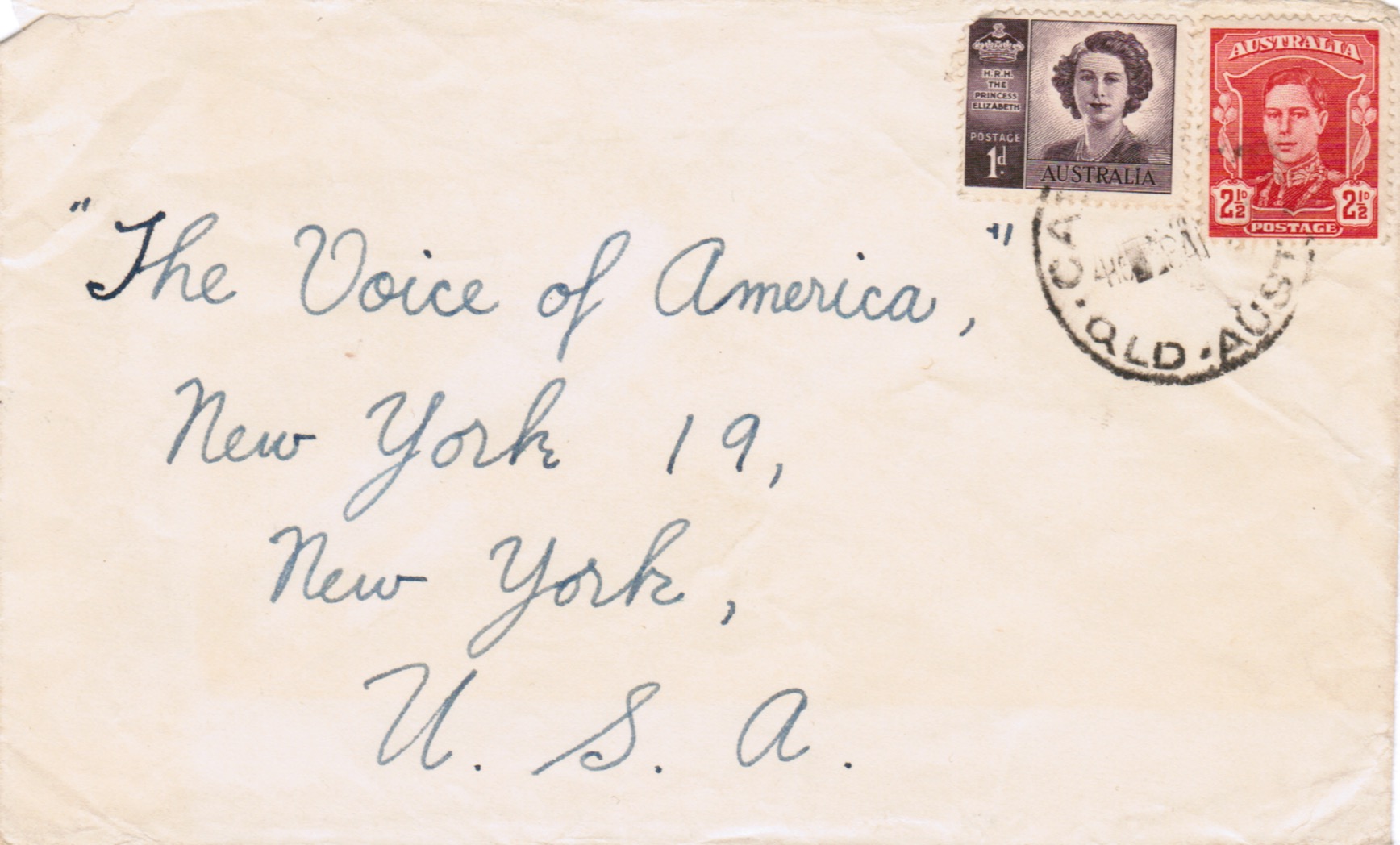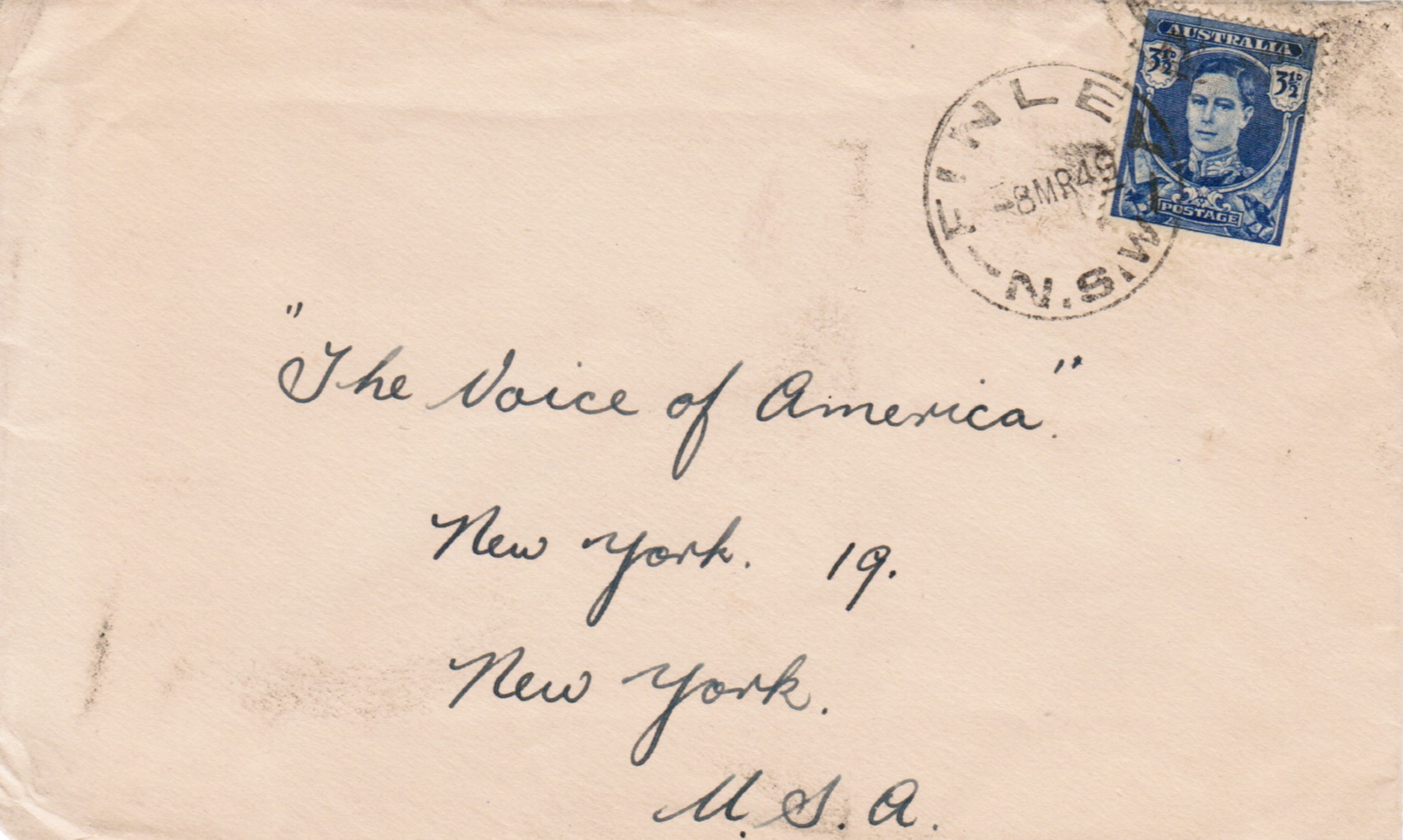Letters from Australia to the Voice of America in New York in the late 1940s
As the Voice of America (VOA), the United States government radio station for international audiences, observes its eightieth anniversary, it may surprise Americans who know about its existence that in its first years during the administration of President Franklin Delano Roosevelt (FDR), the U.S. taxpayer-funded broadcaster had a long period of intense fascination with Soviet communism.
During World War II, the Voice of America did not contribute significantly to the shortening of the military conflict with the fascist Axis powers. Nazi Germany and Japan fought until both were facing an imminent defeat. Pro-Soviet World War II era VOA broadcasters, however, did help Soviet dictator Joseph Stalin with their propaganda establish communist regimes in East-Central Europe and helped Chinese Communists consolidate their victory. The management of the Voice of America has been hiding this part of the organization’s history for many decades.
After the war, the Voice of America quickly lost whatever audience and influence it may have had in Western democratic countries but gained a new audience in Soviet-dominated Eastern Europe after pro-Soviet VOA broadcasters were replaced with refugee journalists from Europe and Asia who were fleeing from communism.
Treated for decades as second-class citizens and denied direct access to wire services by native-born, mostly white, mostly left-leaning, and mostly male Voice of America managers and reporters, these VOA immigrant broadcasters, some of them outstanding women journalists who spent time in communist prisons, did their best to win the propaganda war with the Soviet Union and its satellite regimes.
These letters sent in the late 1940s from Australia to the Voice of America in New York show that VOA still had some following in the Western world after the war, but rapidly declining listenership to VOA radio broadcasts in countries with free media led to the closing down of direct VOA broadcasting to France, Germany, Italy and to many other West European nations.
VOA English-language service remained on the air worldwide after World War II but did not have a large following or impact except in Africa and in a few other developing nations in other parts of the world. Today the largest single audience for Voice of America English-language online content is not abroad but in the United States, even though under U.S. law VOA, now part of the U.S. Agency for Global Media (USAGM), is not funded by taxpayers through congressional appropriations to reach Americans. VOA’s international impact has been greatly diminished in the post-Cold War world.
MORE IN
Voice of America (VOA) – 80 Years of Hidden History
VOA’s Soviet Sympathizers Who Spread Stalin’s Propaganda and Freedom Broadcasters Who Replaced Them
By Ted Lipien
To be published in 2022
Envelope for a letter sent to “The Voice of America” in New York from Australia in the late 1940s with H.R. H. The Princess Elizabeth stamp.
Envelope for a letter sent to “The Voice of America” in New York from Australia in 1949.



